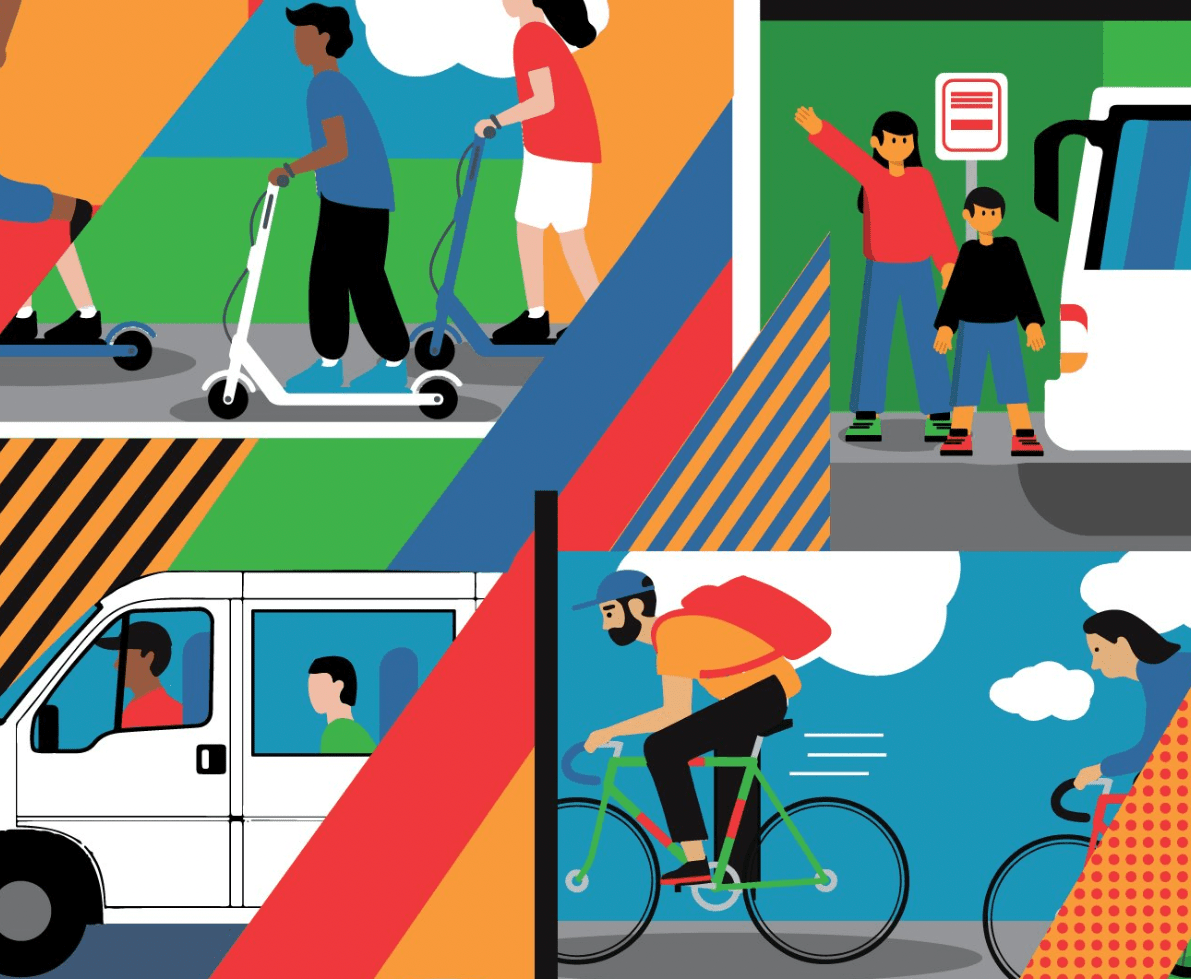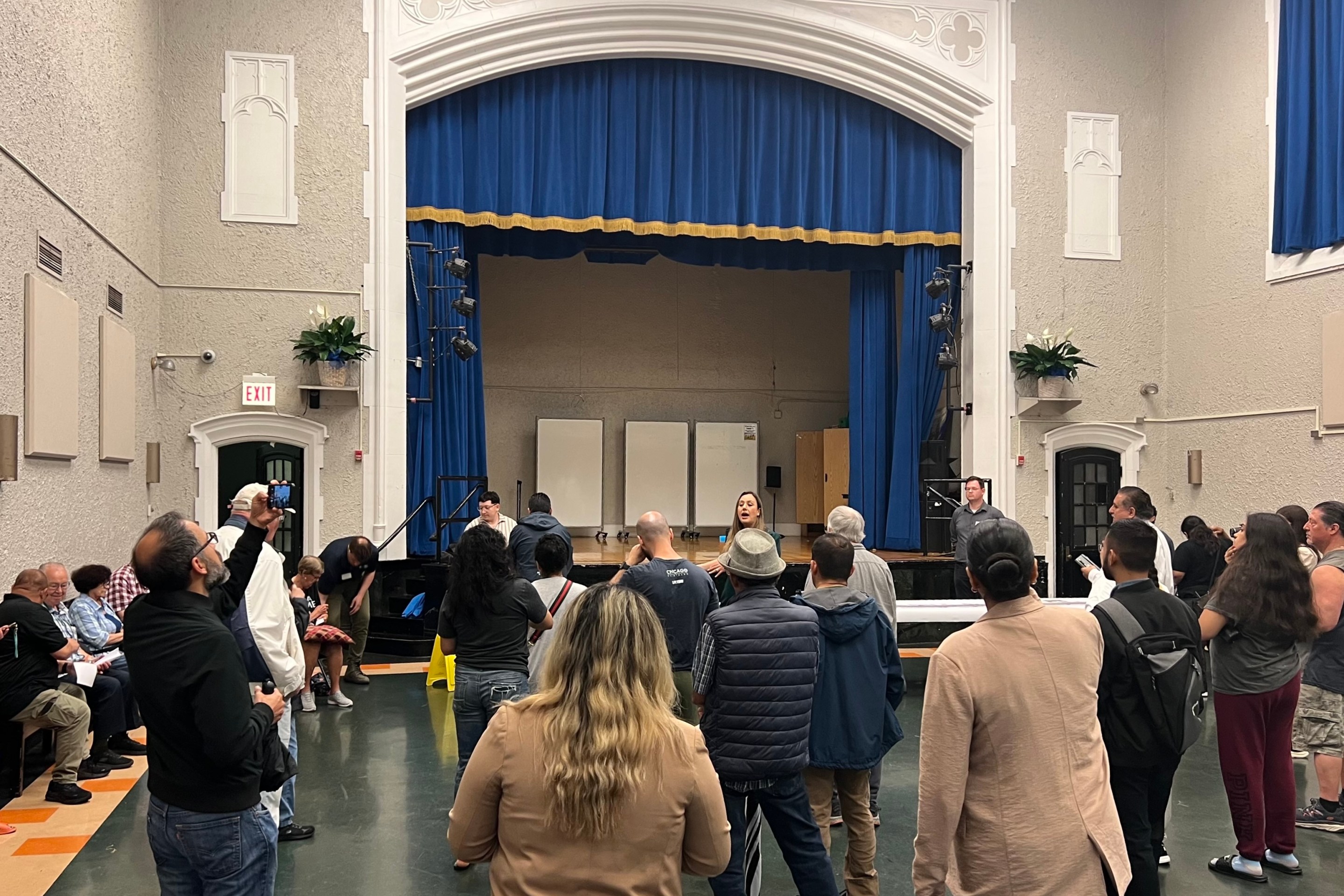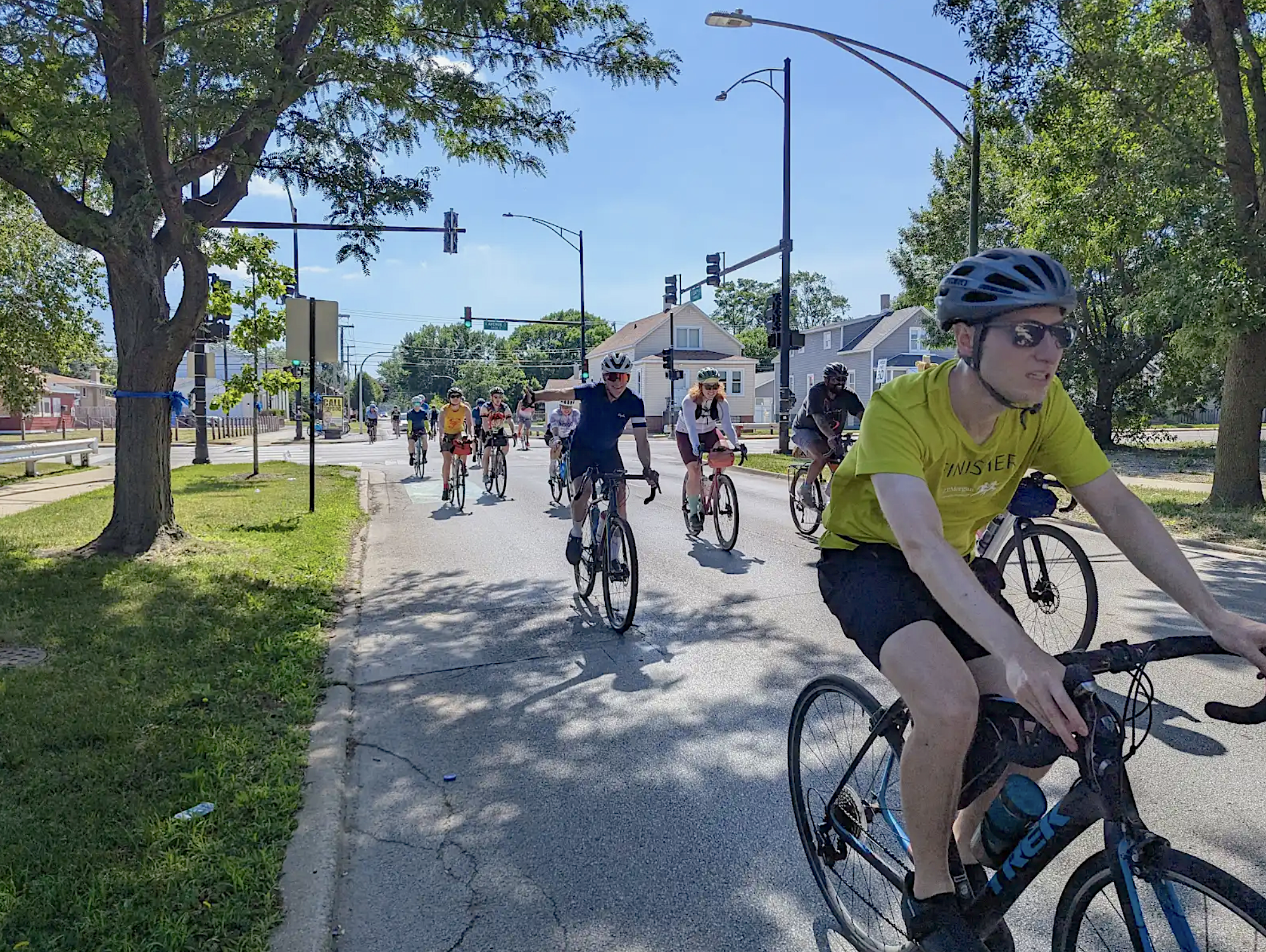Today during a panel on traffic safety at the 2022 National Shared Mobility Summit held at Chicago's Hotel Intercontinental, Streetsblog Chicago co-editor Courtney Cobbs talked about recent local bike fatalities. She argued that each time the "preventable death" of a person on a bike happens, people need to understand that "This person was loved. This person was valued. And we need to value people over the number of cars we can move."
Tomorrow, Wednesday, May 18, the Chicago Ride of Silence will honor fallen cyclists by visiting three downtown bike fatality crash sites from the past year. The ride meets at at 5:30 p.m. at the Thompson Center, 100 W. Randolph St., departing at 6.
Also today at the summit, hosted by the Chicago-based Shared Use Mobility Center, about 50 public, private, and nonprofit organizations announced a project to create the Shared Mobility Action Agenda, a to-do list with the goal of making "equitable, low-carbon shared mobility... more convenient, more practical, more available, easier to use, and even more accessible and more affordable than owning or driving a car" by 2030.
Of course, for many of us in Chicago that already is the case. But that's obviously not always true in all parts of town, let alone the region, state, or country.
"The gas price spike has – again – made many of us painfully aware of our over-reliance on cars," said Benjamin de la Peña, CEO of the Shared-Use Mobility Center, in a statement. "While electrification is necessary, it’s not enough to solve our systemic mobility problems. The Agenda and action network [the dozens of sponsors] intend to make shared mobility the first and best option over car ownership within the decade. We need to do this to fight climate change, make mobility more equitable, and to help households save money."
In a press release about the action agenda, SUMC noted that low-income U.S. households spend almost 40% of their income on transportation, according to a U.S. Department of Transportation's recently published Equity Action Plan. The center notes that new research found that it's crucial to reduce emissions by half over the next decade to fight climate change. Moreover, SUMC points out, we're in the middle of a pedestrian fatality epidemic – the number of people fatally struck by drivers while walking increased by almost 50 percent over the past decade, with most of the victims people of color and seniors. Simultaneously, the latest research shows that we’re running out of time to take bold action on the climate crisis.
"Shared mobility strategies can deliver on the promise of safer roads, more equitable transportation, and the sustainable movement of people and goods – if done right." said Marla Westervelt, vice president of policy at Coalition for Reimagined Mobility, in a statement. "That's why we’re here. Coming together with an influential network of public, private and community advocates, we can collaborate and act to shape the transportation of tomorrow and address the current global energy security and climate crises."
According to SUMC, the action agenda will support all shared transportation options, including transit; on-demand responsive microtransit; shared bikes and scooters; and paratransit. The center also included private Uber and Lyft-type services on this list, even though these services have been shown to increase miles driven and emissions in Chicago and other cities, which is counterproductive to climate goals.
Right now the center is trying to recruit as many action agenda supporters as possible. SUMC plans to release a draft version of the agenda later this summer.
In the release, SUMC noted that the International Energy Association found that that having more shared rides and more transit and micromobility ridership can reduce global oil consumption by as much as 800,000 barrels per day. The center also pointed out that these modes can help reduce demand for highway expansion (which Illinois governor J.B. Pritzker is hoping to squander federal infrastructure funds on), and reduce the amount of land wasted on parking and suburban sprawl.
"The devil is always in the details,” said Kevin Chambers, founder and principal of Full Path Transit Technology. “There are so many ways that shared mobility can be done wrong. Getting so many organizations and individuals with different perspectives together to collaborate on the best paths forward will help ensure we make measurable advances on shared mobility. A priority for me has been making sure that the agenda includes the needs of rural and community-based mobility services."
Indeed, there are many ways to screw up shared mobility. So hopefully the action agenda will focus on shared modes that actually decrease emissions, rather than exacerbate climate change.






